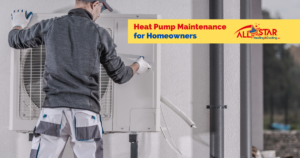The Ultimate Nature Coast Air Conditioning Guide for Homeowners
This guide will teach you everything you need to know about the different types of air conditioning systems available.
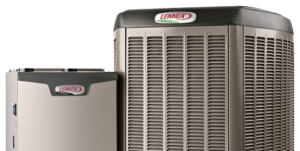
In Florida, air conditioning is a necessity. In the summer, temperatures can easily exceed 100 degrees, and without an AC unit, your home would be unbearable. If you want to sleep comfortably at night and enjoy your home during the day, you need good AC. Even if you already have a system installed, it’s worth upgrading because newer models are so much more efficient and could save you a lot of money.
This guide provides some excellent information about AC units. But if you are still stuck after reading it, an experienced heating and cooling expert can help you pick the perfect AC unit.
What Questions Will This Guide Answer?
- 1. How does an air conditioner work?
- 2. What cooling options do I have?
- 3. Which air conditioner is right for my home?
First Let's Review the Different Air Conditioner Types Available.
The main air conditioner types are:
● Standard Split System
● Ductless Split Systems
● Packaged Systems
● Geothermal Systems
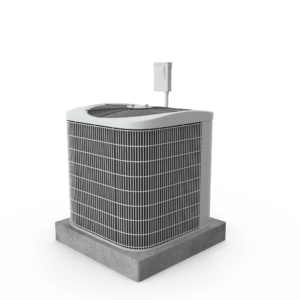
All About Standard Split Systems
This is the most common residential HVAC system.
A split system has component inside (Air Handler Unit, Furnace and Evaporator Coil) and one component outside (Condenser or outdoor unit) that are connected through a set of copper tubing that runs between the two components in order to circulate refrigerant, using a refrigerant compressor, between the evaporator coil and the condensing coil. Conditioned air is then circulated by the blower motor through the duct system. Split systems can be configured in a number of different ways to address the demands of your climate and needs.
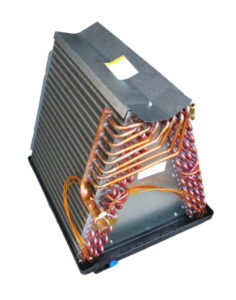
Air Handler and Heat Pump
Heat pump split systems are common in climates or regions where it is warm and where freezing temperatures are rare. (Sound familiar?)
Heat pump split systems use the refrigerant system for both heating and cooling. In the cooling mode the indoor coil acts as the evaporator coil absorbing heat from the air that is being forced over it by the indoor blower motor (IBM) and the outdoor unit acts as the condenser coil rejecting the heat that was absorbed by the indoor coil by pulling air through the outdoor coil using the outdoor fan motor (OFM) and pushing it out the top of the unit into ambient air. The refrigerant is circulated between the indoor and outdoor coil by a refrigeration compressor.
In the heating mode the indoor coil and the outdoor coils roles are reversed. The indoor coil now acts as the condenser coil. The indoor unit now rejects the heat that the outdoor coil, which is now acting as the evaporator coil, absorbed and distributes it through the ductwork to your living space.
This is the most popular unit in our market. We install heat pump units for at least 80% of our customers. Heat pump units work well in our climate because we rarely see days that fall below 40 degrees Fahrenheit. Heat pump units are also equipped with an electric strip heater for auxiliary heat and emergency heat. So, on the few days that we do fall to freezing temperatures you will still stay comfortable in your home.
Furnace and Air Conditioner
This configuration uses an evaporator coil (inside) and a condenser coil (outside) separated by a refrigerant compressor and connected by a set of copper tubing.
The compressor pumps the refrigerant through the copper tubing between the evaporator coil and the condensing coil. The evaporator absorbs the heat from the air being passed over it by the indoor blower motor (IBM) into the refrigerant.
This causes the refrigerant to boil and change state from a saturated refrigerant (liquid and vapor mix) into a 100% refrigerant vapor and the compressor pulls that refrigerant vapor into the suction side, compresses it, and then pushes it through the condenser coil where the condenser fan motor (CFM) pulls ambient air through the condenser coil.
The refrigerant rejects the heat it absorbed in the evaporator coil into the air being pulled over the condenser coil. This process causes the refrigerant to cool and change state from a vapor to a liquid. The liquid refrigerant is then fed into a metering device and then pulled into the evaporator coil where the cycle repeats.
In the heating mode it utilizes a gas or oil (mostly gas) furnace. The burning of fuel (mostly propane or natural gas) generates heat in the furnace’s burners. The heat produced passes through a heat exchanger, making it hot. Air is then circulated over the heat exchanger through the homes ductwork by the indoor blower motor (IBM). The air circulated over the heat exchanger absorbs heat from the heat exchanger which warms the air.
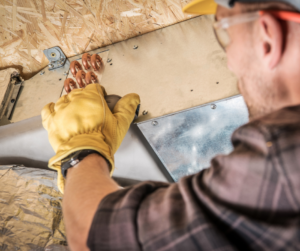
Dual Fuel or Hybrid Heat Systems
Split systems with two sources of heat are referred to commonly as dual fuel or hybrid heat systems. This means that they have a furnace of some type and a heat pump system installed together.
Cooling mode operates the same but in the heating mode they operate a little different. The heat pump supplies heat when it is only moderately cold when the heat pump is more efficient. The system automatically switches to gas furnace when the temperatures drop below freezing and the heat pump becomes inefficient.
What are the benefits of a split system?
Split systems have the greatest range of options for homeowners. They are affordable and most new components can be installed with little or no modifications. Two stage and modulating compressor technologies can optimize temperature and humidity control.
When used with a smart thermostat, you have easy access to controls and the thermostat learns and adjusts itself, so you can save even more money on your electric bills.
ALL ABOUT Ductless Air Conditioners
What is a ductless air conditioner?
A ductless air conditioner is a type of air conditioning unit that does not use ducts to circulate the cooled air. Some homes do not have the necessary ducting for a standard split system and adding ductwork is not feasible due to space or accessibility. This is where ductless systems are a great option.
Ductless systems usually have multiple indoor units that cool the air. The indoor units are connected to an outdoor condenser unit using a series of refrigerant lines. Ductless units allow you to set different temperatures for specific rooms giving you more control with a multi head ductless system. The same principles and refrigeration cycle are used to condition the air only there is no ductwork to distribute the air. Instead, the air handler unit, or head, is mounted on an interior wall or ceiling and the air is blown directly over the coil and into the conditioned space.
Multiple heads or indoor units can be installed to distribute the conditioned air more evenly or to be able to have individualized control or different zones.
ALL ABOUT Packaged Systems
Don't Compromise Your Comfort.
With All Star Heating and Cooling, You Can Get a Full System Replacement with No Payments and No Interest for 12 Months!
What is a packaged system?
A packaged unit or system works using the same principles and components as the other types of systems we have discussed.
Packaged units are manufactured with all of the major components in one large cabinet that is designed to be installed outdoors. In our region package units are mostly used on mobile homes with the ductwork ran underneath the mobile home or coach. Special ductwork is required for this application.
There are multiple types of package units to choose from. The best choice for you and your family will depend on a number of factors including region and utility prices. There are 3 types of package units that are most common in a residential setting:
1. Gas/Electric: a gas furnace with an air conditioner
2. Heat pump: Outdoor unit provides both heating and cooling through the refrigeration cycle
3. Hybrid: a heat pump for heating in moderate temperatures and a gas furnace for heating when temperatures fall below freezing.
ALL ABOUT GEOTHERMAL HVAC SYSTEMS
What is a Geothermal HVAC system?
Geothermal systems use the stable temperature of the earth to facilitate heating and cooling. Water, often containing refrigerant, is circulated through pipes installed under water or under ground to reject or absorb heat. The consistent temperatures underwater or underground facilitate efficient heat transfer for both heating and cooling.
Geothermal HVAC systems offer efficiency levels that exceed that of traditional systems by up to 4 times. The main drawback is installation difficulty and cost. A geothermal system will be much more expensive than the other options we have mentioned here, although the energy saving are significant.
What Type Of Air Conditioner Do I Need?
There are a few key things to keep in mind when choosing an air conditioner:
● Consult with a professional, licensed and insured, contractor. Check out their website and online reviews. The MOST important consideration when replacing your HVAC system is choosing the right HVAC contractor to install your equipment. If installed correctly and maintained your equipment will last longer and breakdown less often.
● Don’t forget about your ductwork! Make sure to have a licensed professional inspect your duct system to make sure the ductwork is sized properly for the equipment that is going to be installed. Manual D duct calculations and designs need to be completed if it is determined that the ductwork is not sufficient or in poor condition.
The right company can increase life expectancy and reduce long term risk by using the established and recommended techniques and practices when installing and servicing your equipment.
Factors to consider when choosing the size of your AC unit
● The overall square footage of the home.
● The number of bedrooms in your home.
● Type of windows in your home (double-glazed, triple-glazed, etc.)
● Insulation in the walls and ceilings.
● Exposure of your home and the general climate in your area.
● Occupation
● Orientation of home
● Ceiling height
● Construction type
● Additional loads need to be taken into consideration like electronic equipment btu outputs as well as number and location of house plants.
The most important factor to consider when selecting an AC system
If you need assistance with your AC unit, get in touch with All Star Heating and Cooling today!


